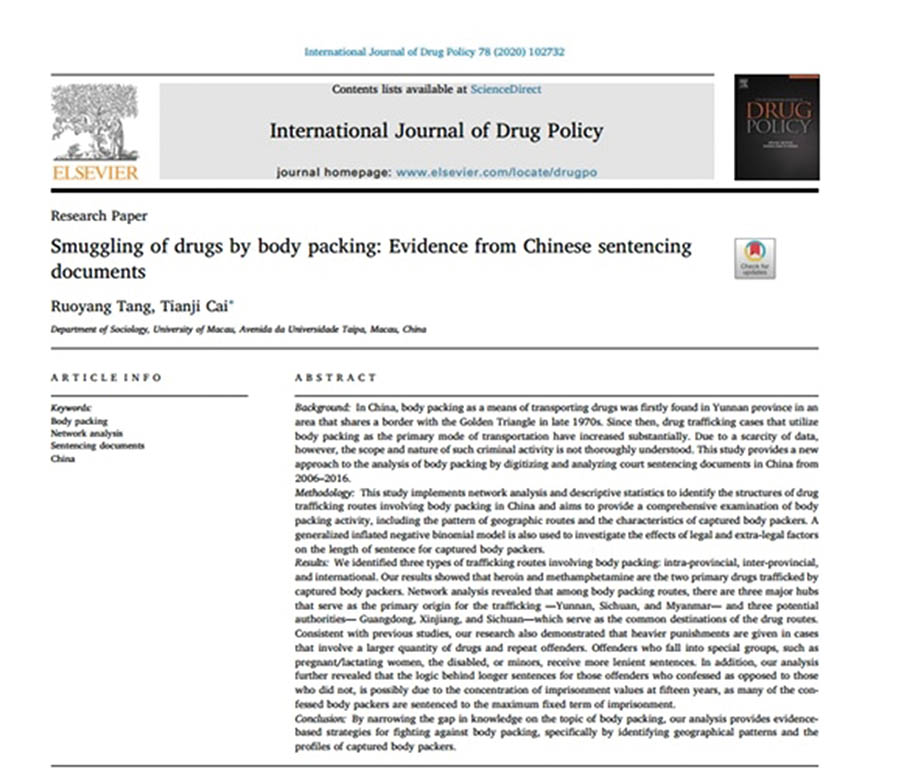According to a statement by the public University of Macau (UM) yesterday, a research article titled “Smuggling of Drugs by Body Packing: Evidence from Chinese Sentencing Documents” has recently been published in the International Journal of Drug Policy – a world-leading journal in the field of substance abuse.
The article was co-authored by Tang Ruoyang, a PhD candidate in the UM Department of Sociology and her supervisor Cai Tianji, an associate professor in the department.
According to the statement, the International Journal of Drug Policy was established in 1987 and places a special emphasis on the exploration of the effects of drug policies and practices on drug-using behaviour as well as health and social consequences.
The journal ranked third in the substance abuse category of the Social Science Citation Index (SSCI), with an impact factor of 4.528 (2018), representing a significant influence in the field, the statement noted.
The article studies the practice of body packing in mainland China and the sentences given for it. By digitising and analysing court sentencing documents in the mainland from 2006 to 2016, the authors examined body-packing activity, including the pattern of geographic routes and the characteristics of arrested body packers in the mainland, the statement noted.
In criminology, “body packers” are persons who, voluntarily or through coercion, swallow, or insert drug-filled packets into a body cavity, generally in an attempt to smuggle them across secure borders, colloquially known as “mules”.
According to the statement, the study has shown that heroin and methamphetamine are the two primary drugs trafficked by arrested body packers. Network analysis has revealed that among body packing routes, there are three major hubs that serve as the country’s primary origin for drug trafficking – Yunnan, Sichuan, and Myanmar, while Guangdong, Xinjiang, and Sichuan serve as the common destinations of the drug routes.
Consistent with previous studies, this study demonstrates that heavier punishments are given in cases that involve a larger quantity of drugs and repeat offenders, the statement said.
Conversely, offenders who fall into special groups, such as pregnant/lactating women, people with disabilities, or minors, tend to receive more lenient sentences, the statement noted.
According to the abstract of the article, in the mainland drug trafficking cases that utilise body packing as the primary mode of transportation have increased substantially since the 1970s. Due to a scarcity of data, however, the scope and nature of such criminal activity is not thoroughly understood. The study provides a new approach to the analysis of body packing by digitising and analysing court sentencing documents on the mainland from 2006–2016.
The study contributes to the field by narrowing the gap in knowledge on the topic of body packing, and providing evidence-based strategies for fighting body packing, specifically by identifying geographical patterns and the profiles of arrested body packers, according to the abstract.

This undated screenshot shows the article published by University of Macau (UM) scholars in the International Journal of Drug Policy this year.





